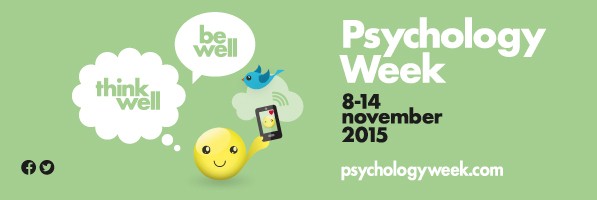
Psychology Week 2015 (8-14 November) will maintain a focus on enhancing wellbeing and helping Australians manage stress, with the overall aim of demonstrating how psychology helps people lead happier, healthier, and more productive lives.
We invite all members to be part of the campaign. With the strength of 22,000 members spread across Australia, we can have an enormous reach by connecting with communities far and wide to show how psychology makes a positive difference to people’s lives.
There are many ways to get involved, including running an event, contributing to the local media campaign or being part of our social media outreach. There are suggestions and advice available on the psychologyweek.com website.
Psychology Week goes international
In the first of what we hope will be a series of joint campaigns, sister societies including the New Zealand Psychological Society and potentially the British Psychological Society, are set to also celebrate Psychology Week at the same time as us, extending the campaign reach and creating potential joint opportunities to raise the profile of psychology.
Events
APS member events are an important way to raise psychology’s community profile. There’s still time to register an event or public display to celebrate Psychology Week 2015. You can register at www.psychology.org.au/psychologyweek/register-event
Please note events must be registered by 20 October to receive a promotion pack that will arrive in time for the week. A range of downloadable resources (posters, templates, tip sheets, logos) are also available on the website.
New – Member media kit
In 2015, we are preparing a dedicated member media kit with a template release, background information and advice to help members tell the story in their local communities. It will be available for download from psychologyweek.com and we will advise members when it is available.
APS Stress and Wellbeing Survey
We will use the survey as the basis for the annual Psychology Week media and social media campaign. This year we will focus on the impact of social media on stress and wellbeing as well as examining the phenomenon known as FoMO (Fear of Missing Out): A fear that if you don’t stay connected online you will miss out or that other people are enjoying a more interesting life.
There is growing interest among psychologists, researchers and media on the impact social media has on our behaviour and wellbeing, so much so that Oxford University researcher Andrew Przbylski has developed a FoMO scale. The APS is using this validated measure as part of its survey this year.
We anticipate that the findings will be interesting from a media and community perspective, providing insights into an area of life with which large numbers of Australians are engaged.
For young people social media is an integral part of life, with the capacity to enhance relationships but also expose them to risks. Gaining an understanding of how young people use social media, how it affects their behaviour and self-perception and sharing those insights and advice will be a key part of the campaign.
The survey results will be released to the media during Psychology Week and shared across social media channels.
Social media
Social media will not only be the subject of the Psychology Week 2015 campaign but the platform for sharing the findings and engaging people. There will be the opportunity to share FoMO results, provide psychological insights and engage in conversations with our social media community around the findings, and members can play a role by being actively involved sharing material, adding to the comment and conversation.
Start by following the APS social media channels including the LinkedIn company page, the APS Facebook page and the APS_Media twitter feed. Use the #psychweek hashtag to tweet relevant content on stress, health and wellbeing, or other interesting aspects of your work in psychology.
As well as liking and sharing content from APS channels, we will be providing some downloadable social media tiles and infographics to share.
Register your event and download resources at psychologyweek.com